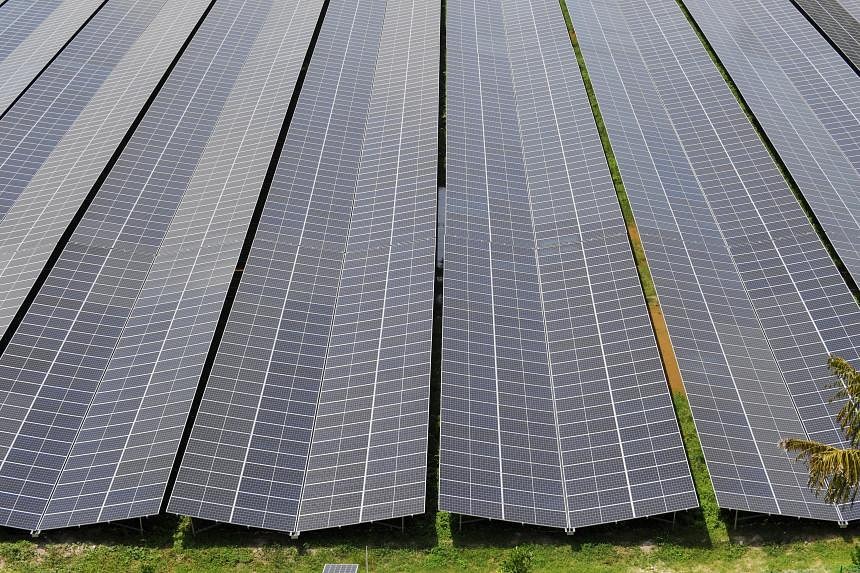Singapore’s ability to adapt to the changing global economic and geopolitical landscape has been a hallmark of its development. Having made its name in basic manufacturing in the 1970s and precision components in the 1980s, Singapore is now a regional services hub, central to international flows of trade, investment, finance and talent.
To continue that success into the future, Singapore will need to evolve again – this time to respond to the urgent and complex challenges posed by climate change.
As daunting as that sounds, this also presents an opportunity for the country to play to two of its core strengths: innovation, to design the clean technology that will help the world decarbonise, and finance, to deliver that technology at scale.
Singapore is the most innovative economy in Asia, according to the World Intellectual Property Organisation’s Global Innovation Index, published in September 2023. And the country recently entered the top 10 in a global ranking of start-up ecosystems by US research company Startup Genome, rising to eighth from 18th and overtaking Seoul, Shanghai and Tokyo in the process.
Singapore’s status as a finance and capital hub has also grown in recent years. It now manages around $5 trillion of assets, with more than three-quarters coming from overseas investors.
With this combination of expertise and financial clout, Singapore is well placed to become a global centre for excellence in cleantech. As the world searches for solutions to the climate crisis, that would be an invaluable next step in the city’s ongoing evolution.
Incentives to act
Accelerating cleantech investment will be critical to Singapore’s future in more ways than one.
Singapore is one of the lowest-lying nations in the world, with an average elevation of only 15m above sea level, so it is particularly vulnerable to flooding from rising sea levels. It faces constraints due to its small size and lack of natural resources. Labour costs are high, and access to clean energy is limited by the lack of available land for solar or wind farms.
On top of all this, Singapore needs to find new ways to create high-quality, future-proofed jobs for citizens at a time when the costs of living and property prices are rising.
Cleantech helps to solve this development conundrum. It does not require vast amounts of natural resources or low-cost labour. But it can help to position Singapore’s economy for long-term growth by leveraging its strengths as a hub for talent, academic research and investment.
Developing and embracing new technologies for the energy transition – such as those that can make construction, shipping or aviation less carbon-intensive – creates an opportunity for Singapore’s economy to evolve once again. Supporting and commercialising innovation in these fields will allow the country to maintain a leading position in high-value global supply chains as they decarbonise.
Leading from the top
The Government has recognised the importance of the green economy and has made cleantech innovation a core component of the nationwide Green Plan. It is supporting research into sustainable technologies through agencies such as the National Environment Agency and the Economic Development Board (EDB), and is promoting itself as a regional hub for new, technology-enabled business models such as carbon trading. The EDB has estimated that carbon trading services could add up to US$5.6 billion (S$7.5 billion) of value to the economy by 2050.
What’s more, initiatives like the Singapore Government-backed Sustainable Development Open Innovation Challenge provide invaluable funding and mentorship to start-ups. And the city’s world-class research institutions, such as the National University of Singapore and Nanyang Technological University, have centres dedicated to sustainability and cleantech.
The Government also sees technology as a tool to mobilise financial resources for green investments. The Monetary Authority of Singapore (MAS) launched an ESG Impact Hub in 2022 to support the building of tech solutions to address the environmental, social and governance (ESG) needs of corporates and financial institutions, such as measurement and reporting of climate and sustainability data.
MAS is also expanding its scope of tax incentives for single-family offices in Singapore to encourage them to invest in local environmental and social causes. That includes extending tax incentive coverage to blended finance structures – a form of financing typically used to fund sustainable developments – and recognising overseas climate-related investments.
Where innovation and finance meet
With a supportive policy environment, more companies are using Singapore as the springboard for their cleantech ventures. The list of start-ups able to access funding in Singapore includes companies working on agri-tech, green hydrogen, battery recycling, energy efficiency software, energy storage technology and bioenergy. And a number of multinationals have chosen Singapore for major investments into sustainable aviation fuel, bio-based polymers and clean mobility, among others.
At the early stage of the investment life cycle, Singapore provides ready access to a vibrant ecosystem of 4,000 start-ups, 220 venture capital firms and over 200 accelerators – many of which are increasingly focused on cleantech and sustainability.
Singapore-based Antler, for example, has embedded ESG metrics in a partnership that will give Antler’s portfolio companies access to banking services from HSBC, including venture debt and working capital.
Some companies are already building whole business models around cleantech innovation. For others, it’s about taking the first step in applying technology to reducing emissions or contributing to climate resilience.
Singapore has a lot to offer them all; its commitment to – and vested interest in – the success of cleantech is clear. It may soon be rivalling London, New York and even Silicon Valley as a sustainability tech hub. One thing is for sure: the city will not be standing still.
- The writer is the managing director and head of commercial banking, HSBC Singapore.

